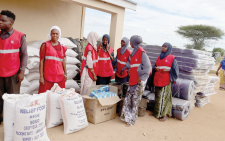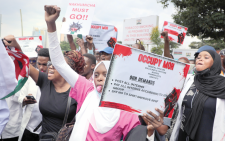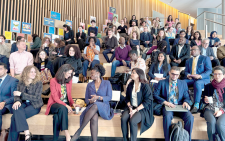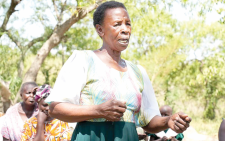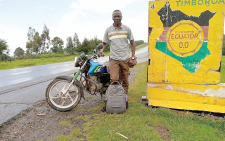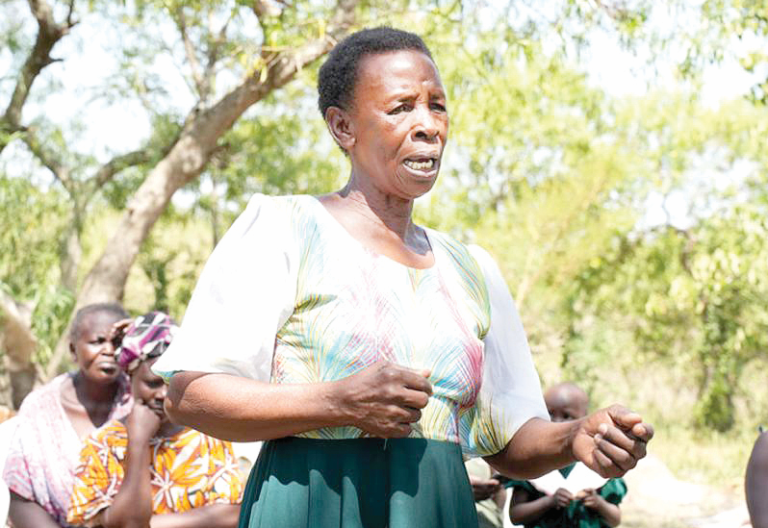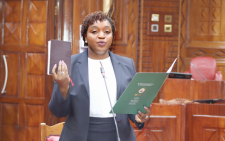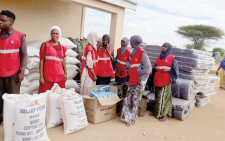West in firm push to reaffirm COP29 fossil fuel transition
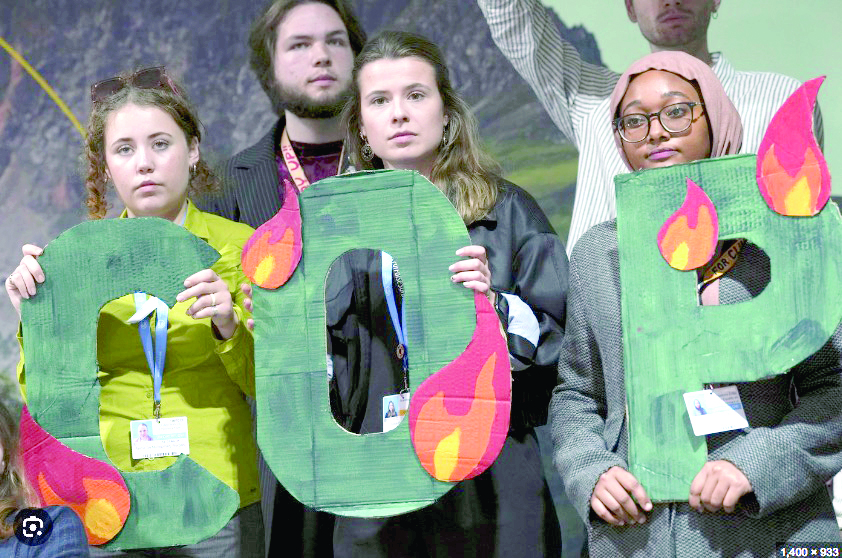
As the United Nations Climate Conference enters the penultimate stage, amid tough negotiations and controversy over fossil fuels, demands have emerged for radical reform in the world’s biggest climate event.
A group of top climate experts, scientists and former United Nations chiefs, in an open letter, are demanding that countries expanding oil and gas should not hold the Conference of Parties (COP) presidencies and host the annual global climate talks.
The letter follows growing concerns over some of the countries chosen to host COP talks and their ability to deliver a significant advance in the fight against rising temperatures.
Crippling heat is everywhere, according to the UN Framework Convention on Climate Change (UNFCCC). Billions of people around the world are wilting under increasingly severe heatwaves driven largely by a fossil-fuel charged, human-induced climate crisis.
The use of oil and gas are major causes of global warming, as they release planet-warming gases like carbon dioxide when they are burned.
According to the UNFCCC, more than 70 per cent of the global workforce – 2.4 billion people – are now at risk of extreme heat. The most vulnerable communities, such as those in Africa, are the hardest hit.
Extreme heat
In response to the rapid rise in the scale, intensity and duration of extreme heat, UN Secretary-General Antonio Guterres has called for an urgent and concerted effort to enhance international cooperation to address extreme heat in four areas:
Protecting workers, boosting resilience of economies and societies using data and science and limiting temperature rise to 1.5 degrees Celsius by phasing out fossil fuels and scaling up investment in renewable energy.
On 21 March 2024, the World Meteorological Organization announced that July 2023 was the hottest month ever recorded in the past 120,000 years, prompting Guterres to ominously declare that “the era of global warming has ended; the era of global boiling has arrived.”
Expanding petrostates
In their open letter, the group of experts and former UN leaders’ concerns over the status of fossil fuels at last year’s COP28 in Dubai, UAE and now COP29 in Baku, Azerbaijan, two fuel-expanding petrostates.
Matters took an alarming turn on the eve of the publication of the group’s letter when Azerbaijan President Ilham Aliyev added fuel to fire by saying “fossil fuels were a gift of God” and that oil and gas were vital elements of Azerbaijan’s energy security. Aliyev defended Azerbaijan’s current exports of gas and plans to expand production by a third in the next decade.
“It’s a gift of God. Every natural resource, whether it is oil, gas, wind, sun, gold, silver, copper, all that are natural resources,” he said.
“We must be realistic. Countries cannot be blamed for bringing their natural resources to international markets, because the market needs them, the people need them,” he said at the opening ceremony of COP29, lashing out at Western foreign governments for attacking him over the fossil fuels, gift of God remarks.
Aliyev also hit out at France for carrying out colonialist “crimes” and “human rights violations” in overseas territories – strongly expressed views rare from the leader of a COP host expected to build consensus on how to tackle rising temperatures.
However, human rights groups have accused the Azerbaijani government of using COP29 to crack down environmental activists and other political opponents, claims the government has rejected saying it holds no political prisoners.
According to Human Rights Watch, long-term human rights concerns persist in Azerbaijan, with the government severely restricting freedoms of expression, assembly, and association.
Military offensive
Amnesty International says Azerbaijan’s blockade of a key route into the breakaway territory of Nagorno-Karabakh following a military offensive that ended in September 2023, endangered the lives of thousands of people and forced many ethnic Armenians to flee the region.
According to the authoritative UK-based Climate Home News: “Fossil fuels have enjoyed warm hospitality at COPs in recent years, with the last two climate summits being held in fossil-fuel-expanding petrostates and COP presidencies even getting caught promoting oil and gas deals on the job.”
The BBC reported that a senior Azerbaijani official appeared to have used his role at COP to arrange a meeting to discuss potential fossil fuel deals. Signed by among others former UN climate chief Christiana Figueres, former UN Secretary-General Ban Ki Moon and former Ireland President Mary Robinson, the letter seeking reform calls for countries to establish a “strict eligibility criteria to exclude countries who do not support the phase out/transition away from fossil energy.”
While the experts recognize the importance of the UN talks, they also call for reform of the COP process, writing that the “current structure simply cannot deliver the change at exponential speed and scale needed to address the climate crisis.” They are concerned that the current COP process is not able to force countries to act.
Figueres later qualified her support for reform, saying they had been “misinterpreted in today’s context.” She said the COP process is an “essential and irreplaceable vehicle for supporting the multilateral, multisectoral, systemic change we urgently need. Now more than ever.”
“We are committed allies to and advocates for this process – and lend our total support to positive efforts underway to further strengthen it for the new era of implementation we are entering into.”
The authors of the letter say host countries “must demonstrate their high level of ambition to uphold the goals of the Paris Agreement. They also want smaller, more frequent COPs, with clear accountability for the promises that countries make.
A substantial and rapid decarbonization of the global economy is required to limit anthropogenic climate change to well below 2 degrees Celsius (1.5 degrees in the Paris Agreement) average global heating by 2050.
Yet emissions from fossil fuel energy generation – which dominate global greenhouse gas emissions – are at an all-time high. Progress and action for an energy transition to net zero carbon is critical.
At COP28 in Dubai last year, all countries agree to “transition away from fossil fuels in energy systems”, but 12 months later emissions of warming gases have increased once again, up by almost 1 percent. According to scientists, emissions need to fall by 42 percent by the end of this decade to avoid a global temperature rise in excess of 1.5 degrees Celsius, considered the threshold to far more dangerous impacts than we are seeing at present.
International Climate Politics Hub Director Catherine Abreu said the UNFCC should come up with a “conflict of interest policy” for delegates and the COP presidency that “puts a firewall between fossil fuel interests and the COP process.”
West in firm push to reaffirm COP29 fossil fuel transition
As the United Nations Climate Conference enters the penultimate stage, amid tough negotiations and controversy over fossil fuels, demands have emerged for radical reform in the world’s biggest climate event.
A group of top climate experts, scientists and former United Nations chiefs, in an open letter, are demanding that countries expanding oil and gas should not hold the Conference of Parties (COP) presidencies and host the annual global climate talks.
The letter follows growing concerns over some of the countries chosen to host COP talks and their ability to deliver a significant advance in the fight against rising temperatures.
Crippling heat is everywhere, according to the UN Framework Convention on Climate Change (UNFCCC). Billions of people around the world are wilting under increasingly severe heatwaves driven largely by a fossil-fuel charged, human-induced climate crisis.
The use of oil and gas are major causes of global warming, as they release planet-warming gases like carbon dioxide when they are burned.
According to the UNFCCC, more than 70 per cent of the global workforce – 2.4 billion people – are now at risk of extreme heat. The most vulnerable communities, such as those in Africa, are the hardest hit.
Extreme heat
In response to the rapid rise in the scale, intensity and duration of extreme heat, UN Secretary-General Antonio Guterres has called for an urgent and concerted effort to enhance international cooperation to address extreme heat in four areas:
Protecting workers, boosting resilience of economies and societies using data and science and limiting temperature rise to 1.5 degrees Celsius by phasing out fossil fuels and scaling up investment in renewable energy.
On 21 March 2024, the World Meteorological Organization announced that July 2023 was the hottest month ever recorded in the past 120,000 years, prompting Guterres to ominously declare that “the era of global warming has ended; the era of global boiling has arrived.”
Expanding petrostates
In their open letter, the group of experts and former UN leaders’ concerns over the status of fossil fuels at last year’s COP28 in Dubai, UAE and now COP29 in Baku, Azerbaijan, two fuel-expanding petrostates.
Matters took an alarming turn on the eve of the publication of the group’s letter when Azerbaijan President Ilham Aliyev added fuel to fire by saying “fossil fuels were a gift of God” and that oil and gas were vital elements of Azerbaijan’s energy security. Aliyev defended Azerbaijan’s current exports of gas and plans to expand production by a third in the next decade.
“It’s a gift of God. Every natural resource, whether it is oil, gas, wind, sun, gold, silver, copper, all that are natural resources,” he said.
“We must be realistic. Countries cannot be blamed for bringing their natural resources to international markets, because the market needs them, the people need them,” he said at the opening ceremony of COP29, lashing out at Western foreign governments for attacking him over the fossil fuels, gift of God remarks.
Aliyev also hit out at France for carrying out colonialist “crimes” and “human rights violations” in overseas territories – strongly expressed views rare from the leader of a COP host expected to build consensus on how to tackle rising temperatures.
However, human rights groups have accused the Azerbaijani government of using COP29 to crack down environmental activists and other political opponents, claims the government has rejected saying it holds no political prisoners.
According to Human Rights Watch, long-term human rights concerns persist in Azerbaijan, with the government severely restricting freedoms of expression, assembly, and association.
Military offensive
Amnesty International says Azerbaijan’s blockade of a key route into the breakaway territory of Nagorno-Karabakh following a military offensive that ended in September 2023, endangered the lives of thousands of people and forced many ethnic Armenians to flee the region.
According to the authoritative UK-based Climate Home News: “Fossil fuels have enjoyed warm hospitality at COPs in recent years, with the last two climate summits being held in fossil-fuel-expanding petrostates and COP presidencies even getting caught promoting oil and gas deals on the job.”
The BBC reported that a senior Azerbaijani official appeared to have used his role at COP to arrange a meeting to discuss potential fossil fuel deals. Signed by among others former UN climate chief Christiana Figueres, former UN Secretary-General Ban Ki Moon and former Ireland President Mary Robinson, the letter seeking reform calls for countries to establish a “strict eligibility criteria to exclude countries who do not support the phase out/transition away from fossil energy.”
While the experts recognize the importance of the UN talks, they also call for reform of the COP process, writing that the “current structure simply cannot deliver the change at exponential speed and scale needed to address the climate crisis.” They are concerned that the current COP process is not able to force countries to act.
Figueres later qualified her support for reform, saying they had been “misinterpreted in today’s context.” She said the COP process is an “essential and irreplaceable vehicle for supporting the multilateral, multisectoral, systemic change we urgently need. Now more than ever.”
“We are committed allies to and advocates for this process – and lend our total support to positive efforts underway to further strengthen it for the new era of implementation we are entering into.”
The authors of the letter say host countries “must demonstrate their high level of ambition to uphold the goals of the Paris Agreement. They also want smaller, more frequent COPs, with clear accountability for the promises that countries make.
A substantial and rapid decarbonization of the global economy is required to limit anthropogenic climate change to well below 2 degrees Celsius (1.5 degrees in the Paris Agreement) average global heating by 2050.
Yet emissions from fossil fuel energy generation – which dominate global greenhouse gas emissions – are at an all-time high. Progress and action for an energy transition to net zero carbon is critical.
At COP28 in Dubai last year, all countries agree to “transition away from fossil fuels in energy systems”, but 12 months later emissions of warming gases have increased once again, up by almost 1 percent. According to scientists, emissions need to fall by 42 percent by the end of this decade to avoid a global temperature rise in excess of 1.5 degrees Celsius, considered the threshold to far more dangerous impacts than we are seeing at present.
International Climate Politics Hub Director Catherine Abreu said the UNFCC should come up with a “conflict of interest policy” for delegates and the COP presidency that “puts a firewall between fossil fuel interests and the COP process.”

